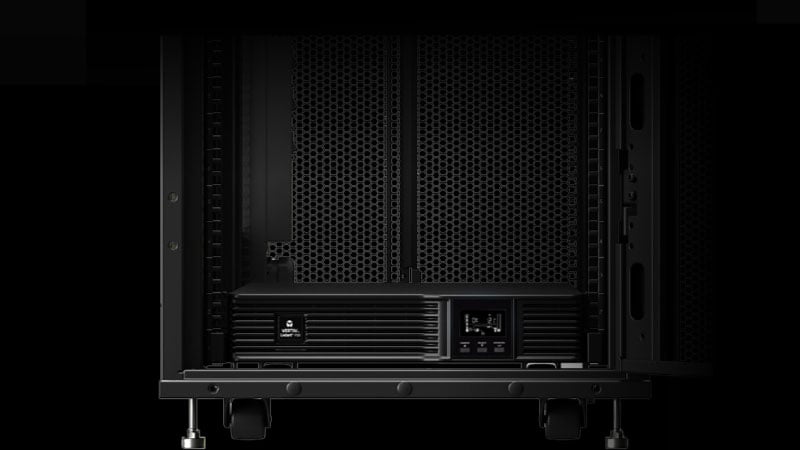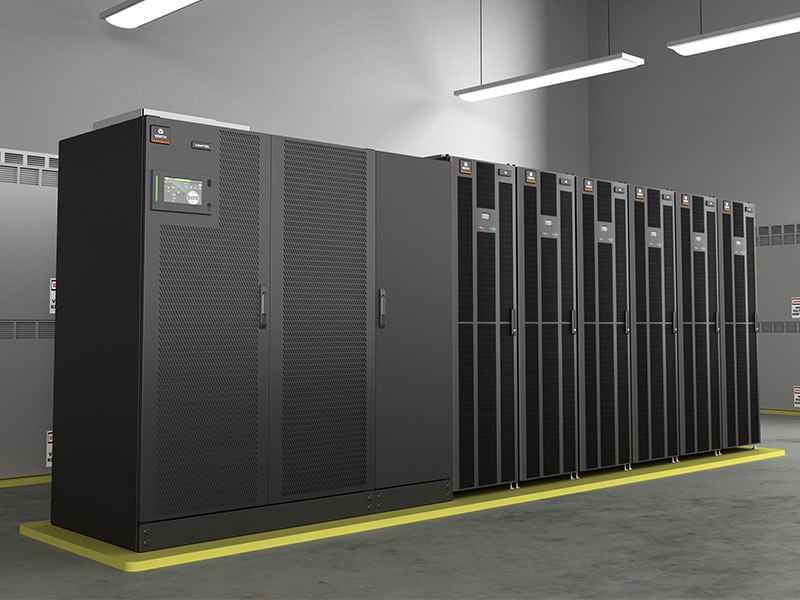New White Paper Helps Data Center Operators Comply with Relevant Codes and Standards
Around the world, lithium-ion battery sales are soaring, with the market value projected to triple from $36.7 billion USD in 2019 to $129.3 billion USD in 2027. In data centers and hosting facilities, lithium-ion Battery-Energy Storage Systems (BESS) provide leap-ahead advantages over Valve-Regulated Lead-aAcid (VRLA) batteries. Not only do they provide a highly reliable source of backup transitional power, but they also address issues data center operators have experienced for decades with managing and optimizing their Uninterruptible Power Supplies (UPS). Lithium-ion BESS offer a longer operational life span; are smaller, lighter and easier to install; and provide more reliable performance at higher temperatures than VRLA batteries, justifying their higher initial purchase price.
A new white paper, Complying with Fire Codes Governing Lithium-ion Use, provides a deep dive on critical fire codes, standards and test methods governing lithium-ion battery use. The paper is designed to help purchasing teams and data center operators understand updated compliance requirements governing the fire safety of data center equipment, so that they can make informed decisions for their business.
UL 9540A and UL9540 Released to Address New BESS Technology Developments
While many of the fire codes and standards have been around for years (or even decades), there have been two more recent developments governing the fire safety of data center equipment. Specifically, Underwriters Laboratory (UL) has released:
- UL 9540A: Test Method for Evaluating Thermal Runaway Fire Propagation in Battery Energy Storage Systems –. UL 9540A is a fire test method performed by a third party to evaluate the fire safety of these systems.
- UL 9540: Energy Storage Systems and Equipment. – UL 9540 is a certification that manufacturers can attain and use to advertise their ESS products.
The white paper provides valuable insights into the complex world of fire codes, standards and test methods that can be challenging to navigate. However, addressing them proactively can yield significant business and technical benefits, while ensuring regulatory compliance and protecting public health and safety.
Reading the white paper will help you:
- Understand how UL 9540A and UL 9540 build on earlier standards such as NFPA 855, the Standard for the Installation of Stationary Energy Storage Systems
- Walk through UL 9540A, a test method that battery manufacturers can use to demonstrate the safety of their solution
- Evaluate the pros and cons of different fire suppression methods
- Explore how a successful UL 9540A report can increase your business and technology flexibility
Successful UL 9540A Reports May Allow You to Increase Energy Capacity
International Fire Code (IFC) 2018 (code), National Fire Protection Association (NFPA) 1 2018, and NFPA 855 (standards) all require that a BESS be spaced three feet apart if a group or array is greater than 50 kWh. That translates to greater space constraints as your equipment will take up more space in your data center, potentially increasing your building and operational costs, while decreasing your capacity. Space and capacity requirements may be waived by an Authority Having Jurisdiction (AHJ) based on the findings of a UL 9540A report.
This waiver could provide your business with much needed power, capacity, and flexibility, if you can meet these requirements. At the AHJ’s discretion, the UL 9540A report can be used to provide a waiver for increased energy capacity of individual BESS units above 50 kWh for an array or above 250 kWh for a listed pre-engineered and prepackaged array and to reduce the three-foot space requirements.
Understand what your teams need to do to meet new UL9540A test method requirements.
Download the White Paper



